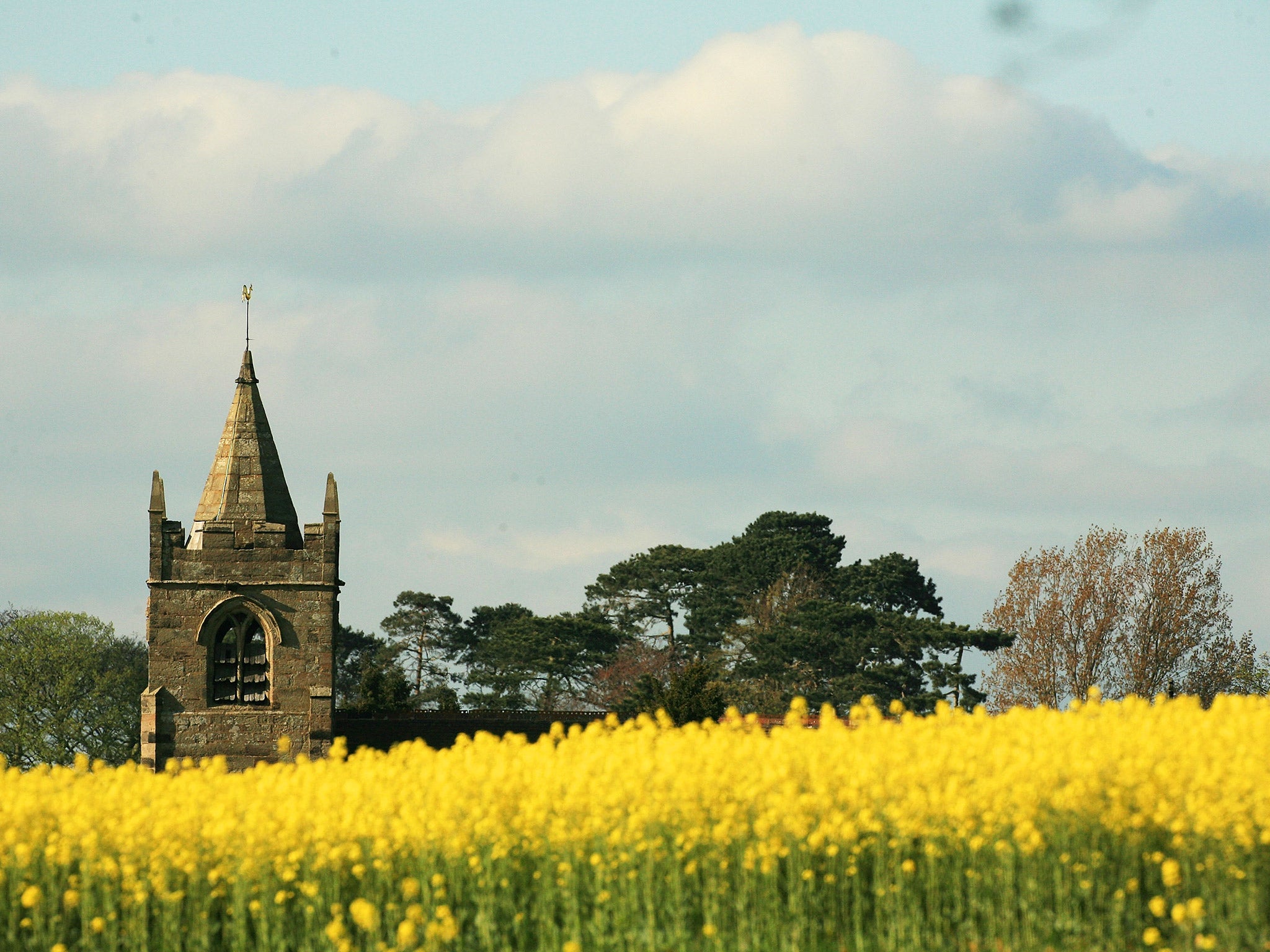Church of England ‘should sell off its £2bn land estate for housing’
Campaigners claim substantial estate could have ‘transformative impact’ on UK’s housing crisis

The Church of England, one of the country’s biggest landowners, needs to put its house in order and sell off some of its land in response to Britain’s housing crisis, according to a newly released report.
The radical move is being proposed by the Centre for Theology & Community, and the Christian campaigning group Housing Justice. They warn that the shortage of affordable housing poses a fundamental threat to the shape of Britain’s communities and cities.
“Unless we act now, it may be too late – and the poorest will be pushed to the geographical margins. We need to build on the success of campaigns for a Living Wage and responsible lending, otherwise they will be undermined by the consequences of the housing crisis,” says the report.
The Church has an enormous estate which includes properties in villages, towns and cities across the country as well as more than 100,000 acres of land in England and Wales. Its property portfolio is worth almost £2 billion and accounts for around a third of the £6.7bn in assets it holds.
When it comes to tackling the housing problem, it needs to lead by example, states the report: “The Church cannot speak out on this or any other issue without putting its own house in order. If churches are to call for others to make housing a priority, we will have to consider how we steward our property – and how congregations might offer practical support to housing associations.”
Selling off some of its land to build homes on is one such way, with a “surprising amount of land” owned by various denominations. “Where land for housing is scarce, church land can be particularly useful to housing associations,” it says.
The case of a large vicarage in Gloucester which had become disused is cited as an example of how land can be put to better use. The land was leased to a housing association and used to create 14 new homes.
Other ways in which the Church can help include providing volunteers for housing associations and meeting the “spiritual needs of residents”, as well as campaigning on housing issues.
There are 12,000 parishes in England, but many churches have been slow to consider development of their land of any kind – often sitting on underused land for many years, according to the report. Yet charity law allows them to sell land below market value for social housing where it falls within their charitable objects, as it does for most, according to the report.
Writing in the foreword, the Venerable Rachel Treweek, Archdeacon Of Hackney, Bishop-Elect Of Gloucester, says: “I have seen at first hand what the Church can do in partnership with others: how it has been at the heart of initiatives which have secured a Living Wage for low-paid workers, challenged exploitative lending and supported ethical alternatives. I believe the Church can have the same transformative impact on the issue of housing.”
And David Orr, chief executive of the National Housing Federation, said: “By bringing together our assets and skills, churches and housing associations can go further in creating lasting change in our communities.”
Responding to the report, Campbell Robb, Chief Executive of Shelter, said: “At a time when our housing shortage is leaving thousands of families struggling to keep a roof over their heads, it’s inspiring to see a proposal encouraging integral parts of the community to help provide the genuinely affordable homes we need.” He added: “But ultimately, the government needs to meet initiatives like these half way, by investing in building the homes we need, because without government rolling up its sleeves as well, we won’t fix this crisis.”
In a statement, a spokesperson for the Department of Communities and Local Government said: “We welcome this report particularly the proposal on releasing land for social housing.” They added: “Housing is an important issue for us all and while housebuilding is at an 7-year high, with construction starts up 5% over the last year alone, we must maintain this momentum.”
So far, just six per cent of the land owned by the Church has been earmarked for development for things such as new homes. In a statement, a spokesperson for the Church of England said: “The Church Commissioners own 105,000 acres of rural let land across England and Wales. Approximately 6,000 of these acres have been identified for strategic development, including the provision of new market and affordable homes delivered in conjunction with house builders and Housing Associations.”
These blessed plots: Church of England land
The land and property belonging to the Church of England is owned and managed by 41 dioceses, which makes it difficult to provide a detailed picture. Its assets include 16,000 churches in England and 105,000 acres of land across England and Wales. As well as owning large parts of land in cathedral cities such as Canterbury, York, Peterborough and Ely, the Church also has investments in commercial and residential properties, such as the Hyde Park Estate in London, which form an overall property portfolio worth almost £2bn.
It continues to buy up land – securing 121 acres in Carlisle, 50 acres in Peterborough and 765 acres in Kent last year, as well as 17,000 acres of forestry in Scotland and Wales.
The land it owns is not confined to Britain. Last year, it bought a share of an empty office building in Burbank, California, as well as land in Michigan for retail and residential development. It also bought 27,000 acres of forest in Virginia, and land in the Northern Territory, Australia to establish new sandalwood plantations.
Jonathan Owen
Join our commenting forum
Join thought-provoking conversations, follow other Independent readers and see their replies
Comments